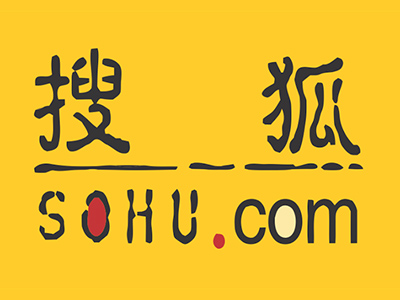搜狐(SOHU.US)2024年第四季度业绩电话会
文章语言:
简
繁
EN
Share
Minutes
原文
会议摘要
Sohu reported Q4 financial results with a GAAP net loss of $21 million and non-GAAP loss of $50 million. Brand advertising revenues fell 24% annually, while online game revenues rose 5%, exceeding expectations. The company attributed the decline to macroeconomic factors and reduced advertising budgets. Sohu highlighted AI-enhanced user experience and content, successful events, and game portfolio expansion. It also updated on a $52 million share repurchase program. For Q1 2025, brand advertising is expected to decline, while online game revenues are forecasted to be flat. Sohu remains optimistic about leveraging AI and expanding internationally in gaming.
会议速览
A conference call discusses Sohu's fourth-quarter earnings, emphasizing the company's forward-looking statements and the risks associated with them, as outlined in SEC filings.
In Q4 2024, Sohu reported robust brand advertising revenues, a 5% year-over-year decline in total revenues, and significant improvements in online gaming and social media engagement. Key highlights include successful events like the K-pop Dancing Festival and Hanfu Costume Competition, enhancing user interaction and premium content generation, driving unique marketing solutions for advertisers. Despite slight revenue declines, Sohu's strategic focus on technology, product optimization, and content innovation positioned it strongly in the digital media landscape, reinforcing its brand influence and competitive edge in knowledge and science-related live streaming.
Content library enriched with new dramas and series; online game business exceeded revenue guidance; share repurchase program nearing completion with 4.2 million shares bought.
Discussed Q4 & FY24 revenues and operating profits, highlighting declines in media platform and increases in online games, with FY25 projections indicating revenue drops and net losses.
The dialogue covers the soft sequential decline and wider year-on-year drop in Q1 brand advertising, attributed to macro-economic conditions reducing advertiser spending. It also touches upon management's perspective on integrating operations and the implications for future growth, highlighting the economic impact on marketing budgets and the strategic outlook for integration.
Discusses AI applications in media, social networks, and gaming, focusing on content generation, organization, editing, and enhancing user experience. Highlights AI's potential in video summarization, voice-to-text, and design, aiming to streamline production processes and boost efficiency.
Discussion revolves around the effect of macroeconomic conditions on advertising budgets, noting reduced spending due to weaker consumption. Also covers the status of a company's stock buyback program, indicating progress and future plans.
Despite enthusiasm for AI's potential, its immediate impact on marketing benefits is limited by economic factors like reduced consumer spending and job displacement. The dialogue explores whether specific sectors, such as FMCG or electronics, show increased ad spending amidst these challenges.
FMC has overtaken automobile to become the leading sector among advertisers, influenced by changes in consumer spending towards smaller items like food, alcohol, liquor, and electronics, as well as shifts in trading policies. The discussion concludes with appreciation for the insights shared.
要点回答
Q:What were the financial highlights of Sohu's fourth quarter and全年 2024?
A:In the fourth quarter of 2024, Sohu reported brand advertising revenues of $19 million, down 7% year over year, and 1% quarter over quarter. Online game revenues were $110 million, down 14% year over year and up 13% quarter over quarter. GAAP net loss attributable to Sohu was $21 million compared to a net loss of $30 million in the first quarter of 2023 and $16 million in the third quarter of 2023. Non GAAP net loss was $50 million compared to $11 million in the fourth quarter of 2023 and $12 million in the third quarter of 2024. For the entire year of 2024, total revenues were $598 million, flat compared to 2023. Brand advertising revenues were down 22% compared to 2023, while online game revenues were up 5%.
Q:What initiatives have contributed to Sohu's social media platform growth?
A:Sohu's social media platform growth was driven by a focus on technology and product improvement, enhanced user experience, and the organic integration of online and offline events. They capitalized on the synergy of the So product matrix and the Bilibili Community (Fork Ring) to attract more users, especially the younger demographic. Notable events and activities include the 2024 k-pop dancing tour competitions, the 24 Dream Concert, the Sohu Video Dancing Festival, the nationwide competition showcasing traditional Chinese hanfu costume, and the Sohu Fashion Worlds event. These events bolstered Sohu's leading position and influence in the k-pop and related verticals while stimulating social interactions and content generation on the platform.
Q:How did Sohu's events and programs impact user engagement and content generation?
A:Sohu's events and programs significantly impacted user engagement and content generation by actively promoting interactions and刺激内容创作. Initiatives such as the k-pop dancing tours, the 24 Dream Concert, and the Sohu Video Guo Feng Shi Guo Feng Sheng Ya Guo Feng Festival not only reached a wide audience but also sparked extensive discussion and dissemination across multiple social media platforms. The continued broadcasting of the chart physics class and the acquisition of TV dramas also contributed to user engagement by popularizing professional knowledge and reinforcing Sohu's core竞争力 in science-related live streaming.
Q:What strategies are in place for Sohu's online game business?
A:Sohu's online game business strategies include the ongoing launch of expansion packs and content updates for their popular titles, such as the TLBB series, to maintain player engagement. In the PC games business, they are focused on the top game strategy, emphasizing a user-centric philosophy to optimize research and development and improve efficiency and product success rate. Additionally, Sohu is looking to intensify its international presence while retaining core competitiveness in MMO/RPGs. They are also planning to diversify their game portfolio with various types of games, including card-based RPGs, sports games, and casual games. These strategies are aimed at bringing more high-quality games to the market.
Q:What is the updated status of the share repurchase program as of February 13, 2025?
A:As of February 13, 2025, the company has repurchased 4.2 million shares for an aggregated cost of approximately $52 million.
Q:How does the performance of the online game business compare for the full year of 2024 versus 2023?
A:For the full year of 2024, the online game business had revenues of $506 million compared to $485 million in 2023, and an operating profit of $196 million compared to $203 million in 2023.
Q:What is the anticipated range for non-GAAP net loss attributable to full income limited in the first quarter of 2025?
A:The anticipated range for non-GAAP net loss attributable to full income limited in the first quarter of 2025 is between $16 billion and $26 million for net loss attributable to common stock limited, and between $20 million and $30 million for net loss attributable to so limited.
Q:What are the potential impacts of the macro-economic situation on brand advertising spending?
A:The macro-economic situation is impacting brand advertising spending as people and companies are spending less due to overall economic constraints. This is evidenced by a decrease in marketing budgets, with some companies reducing their spending significantly. The trend is visible in various sectors, with a notable trend being the reduction of advertising budgets by many companies, some by almost half.
Q:How is the AI technology being applied within the company's media and social network products?
A:The AI technology has been applied in the last two years to various products such as organizing content, generating content, and improving efficiency in content production. In the future, AI will help summarize video content, and in social networks, it will aid interaction and content generation with features like voice-to-text and potentially large model language models to assist users in generating content.
Q:What sub-sectors have shown increased advertising budget spending and why?
A:The FMCG sector has become a top sector among advertisers, with categories like food, alcohol, and electronics seeing increased ad spending. This is attributed to consumers spending more on smaller items and influenced by government trading policies.

Sohu.com Ltd.
Follow





